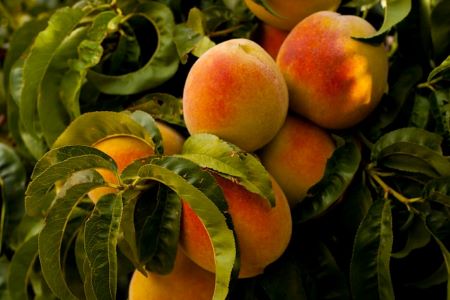Why It’s Important to Know About Them
In my AlkaGlow lifestyle concept, nothing is forbidden—there’s no strict list of foods you must avoid forever. Instead, I aim to educate and inform you about the potential negative sides of certain foods. Understanding the impact of what we consume is crucial, and reducing the intake of certain compounds can enhance your health and well-being. One such compound that deserves attention is lactones. While they can add delicious flavours to our food, it’s important to know the potential downsides of consuming too many lactones, especially when it comes to gut health.

What Are Lactones?
Lactones are organic compounds found in various foods, known for contributing to their aroma and flavour profiles. These compounds are often naturally present in fruits, dairy products, fermented foods, and even certain processed items. For example, lactones give peaches their sweet, fruity smell and contribute to the creamy taste of dairy products like butter and cheese.
You can find lactones in foods like:
- Fruits: Peaches, coconut, apricots, mangoes, plums
- Dairy: Butter, cheese, milk
- Fermented foods: Miso, soy sauce, yogurt, and kefir
- Coconut products: Coconut oil, milk, and flesh
- Alcoholic beverages: Aged wines, whiskey, and other oak-aged spirits
The Hidden Side of Lactones
While lactones play a key role in making our food taste better, they may pose challenges, especially to our gut health. Here’s why:
- Potential Gut Irritation
Lactones, particularly those found in fermented foods and processed items, can irritate the gut lining, potentially exacerbating issues like leaky gut or irritable bowel syndrome (IBS). For individuals with sensitive digestion, the consumption of lactones may result in discomfort. - Interference with Nutrient Absorption
Lactones can interfere with the absorption of certain nutrients in the gut, particularly in those who already struggle with digestive issues. For example, some studies suggest that lactones can affect iron and calcium absorption, which are crucial for overall health. - Disruption of Gut Microbiota
Lactones can impact the delicate balance of bacteria in the gut. While they are not harmful in small amounts, an overconsumption of lactone-rich foods, especially highly processed ones, could disrupt your gut microbiota, potentially leading to digestive discomfort, bloating, or an imbalance in gut flora.

Foods Rich in Lactones
If you’re looking to reduce your lactone intake for better gut health, it helps to know which foods contain them. Here are some of the main sources:
- Fruits: Coconut, peaches, apricots, berries, and plums are natural sources of lactones, but they’re generally safe in moderation.
- Dairy Products: Lactones are found in butter, cheese, milk, and cream, contributing to their rich, creamy flavours. Reducing processed dairy may help improve digestion.
- Fermented Foods: Miso, soy sauce, and fermented dairy like yogurt contain lactones. While fermentation can support gut health, excessive consumption of lactones from these sources might lead to irritation for some.
- Coconut Products: Coconut oil, milk, and flesh are popular for their healthy fats, but they also contain lactones. Keep an eye on how much coconut you’re consuming if you’re prone to digestive issues.
- Alcoholic Beverages: Lactones in oak-aged spirits like whiskey or wines can affect sensitive digestive systems. Moderation is key here as well.
How to Approach Lactones in Your Diet
So, does this mean you should avoid all lactone-containing foods?
Absolutely not!
The AlkaGlow lifestyle is not about cutting out entire food groups but about awareness and balance. If you notice discomfort after consuming certain foods, it might be helpful to moderate your intake of lactone-rich items. For most people, enjoying these foods occasionally and in moderation won’t be harmful.
Instead of eliminating lactones altogether, I recommend you:
- Balance your intake: Pair lactone-containing foods with fibre-rich options to support gut health.
- Limit highly processed foods: These often contain concentrated lactones and can have other additives that irritate the gut.
- Listen to your body: If you experience bloating, discomfort, or other digestive issues, consider reducing your intake of lactone-rich foods.
Conclusion
Lactones are naturally found in many delicious foods, contributing to flavours and aromas we love. However, overconsumption—especially from processed and fermented foods—can potentially irritate the gut, disrupt nutrient absorption, and affect your microbiota balance. That said, moderation is key, and there’s no need to eliminate them from your diet entirely. By being aware and mindful, you can continue enjoying a wide variety of foods while supporting your gut health.

If you’re looking to create a gut-friendly, balanced lifestyle, the AlkaGlow approach is here to guide you. Feel free to enjoy the foods you love—just be informed, aware, and always listen to your body.
By staying informed, you can enhance your wellness & make choices that nourish your body from the inside out!
References
- Sun, S., & Ruan, C. (2015). Lactone Compounds and Their Effects on Human Health. Journal of Nutrition & Food Sciences, 5(6), 1000418.
- Rivière, A., Selak, M., & de Vos, W. M. (2016). Impact of Food Components on Gut Microbiota and Health: Lactones in Fermented Foods. Frontiers in Microbiology, 7, 1082.
- Singh, R., & Chand, D. (2020). Gut microbiota and fermented foods: How lactones contribute to gastrointestinal health. Current Opinion in Gastroenterology, 36(3), 202-210.
- Gänzle, M. G., & Follador, R. (2012). Metabolism of oligosaccharides and starch in lactobacilli: A review. Microbial Cell Factories, 11(1), 136.
- Yadav, M., Jain, S., & Tomar, R. (2016). Fermentation and gut health: Effects of various fermented foods on microbiota balance. Food Science and Human Wellness, 5(4), 219-226.





